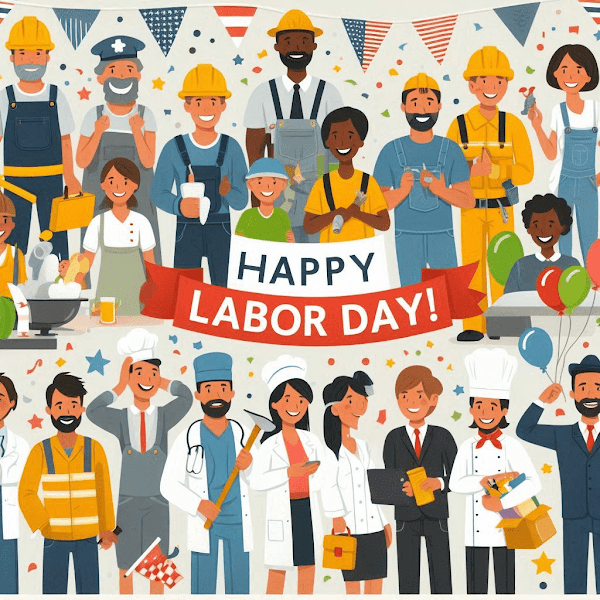- Get link
- X
- Other Apps
- Get link
- X
- Other Apps
Introduction:
Labor Day, also known as Labour Day or May Day, is celebrated annually on the 1st of May in many countries around the world. This international holiday honors the contributions of workers and the labor movement, advocating for workers' rights and better working conditions. Let's explore the history, significance, and celebration of Labor Day.
History of Labor Day:
Labor Day has its roots in the labor movement of the late 19th century, particularly in the United States. It originated as a day to honor the American labor movement and the contributions of workers to the development and prosperity of the nation. The first Labor Day celebration took place on September 5, 1882, in New York City, organized by the Central Labor Union. Over time, Labor Day became an official federal holiday in the United States, observed on the first Monday of September.
Significance of Labor Day:
Labor Day symbolizes the achievements of workers and their struggles for fair wages, reasonable working hours, and better working conditions. It serves as a reminder of the labor movement's victories, including the establishment of labor unions, the implementation of labor laws, and the improvement of workplace safety standards. Labor Day also highlights the importance of collective action and solidarity among workers in advocating for their rights.
Celebration of Labor Day:
Labor Day is celebrated in various ways around the world. In many countries, it is a public holiday marked by parades, picnics, and other festivities. Workers and labor unions organize events to commemorate the day, including rallies, marches, and speeches advocating for workers' rights. It is also a time for people to relax and enjoy the unofficial end of summer with family and friends.
Conclusion:
Labor Day is a time to recognize and appreciate the contributions of workers to society. Whether through the labor movement's historical struggles or the modern-day efforts to promote fair labor practices, Labor Day reminds us of the importance of valuing and respecting the dignity of all workers.
history of Labor Day
International Workers' Day
Labor Day
Labor Day celebration
Labour Day
May Day
significance of Labor Day
- Get link
- X
- Other Apps

Comments
Post a Comment